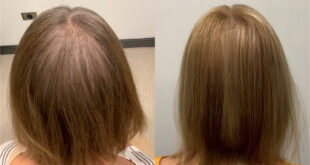A powerful, drug-free method and technology can help – often dramatically.
By Tina Landeen, LCSW and Michael Cohen, Founder, CBT –
Do you or someone you know experience chronic anxiety? Are you excessively nervous or fearful? Do you have panic attacks? If so, you’ve probably already tried or considered medications. Unfortunately, medications don’t always eliminate all the symptoms, and they can have concerning side effects.
Medications also don’t teach your brain to be healthier. You don’t learn to quiet your mind or how to be calm. And unfortunately, many doctors are not yet familiar with treatments other than medication.
Are There Alternatives to Medications?
Yes. One alternative is neurofeedback. It’s been proven to greatly reduce or even eliminate anxiety symptoms. For people currently taking medication, using neurofeedback can help lessen a reliance on meds, and some people are able to stop taking anxiety medication entirely.
Neurofeedback helps train the part of your brain that CONTROLS stress more than merely helping you manage it. When you struggle with anxiety, part of your brain is simply not able to keep you calm. Neurofeedback trains that part of the brain to function better and maintain healthier patterns.
Why Can’t You Simply Talk Yourself Out of Anxiety?
People who don’t understand anxiety may tell you to calm down and not let things bother you. If it were that easy, you’d already do it. When you have anxiety, the parts of your brain that are supposed to keep you calm aren’t working very well. As a result, anxiety sufferers are often overwhelmed, exhausted, and feel the people around them don’t understand. You can’t talk yourself out of an entrenched brain pattern.
Can You Learn to be Calmer?
Neurofeedback is one of the most powerful technologies for reducing anxiety and panic attacks by helping the brain eradicate the stuck patterns that cause the anxiety. While everyone experiences anxious moments, with chronic anxiety, your brain gets stuck in that state, and it’s difficult to change it.
Elizabeth is just one client whose life benefited from neurofeedback. Elizabeth, age 35, experienced severe anxiety and had up to 5 panic attacks a day. She said they were “taking over my life.” She had been having problems with anxiety and panic attacks since age 17. After 10 neurofeedback training sessions, she had no panic attacks for almost 6 months. Training her brain helped her change the unhealthy pattern.
Another client (a licensed therapist himself) is a very wound-up man. He’s hyper and anxious most of the time, though you’d not know by looking at him. After one 30-minute neurofeedback session, he said “I haven’t felt this calm in my whole life.” That doesn’t mean one session solves the problem – his brain didn’t know how to be calm. He was able to rapidly learn, but it takes more time to become a new habit. He had tried therapy and medications for years. Only when he learned to calm his brain did it calm his mind. Neurofeedback helped him learn to change is chronic pattern – in his case, quite rapidly.
Our clients have often tried everything — from medication to meditation, from yoga to diet and exercise, from alcohol to stress-reduction techniques.
Many clients who have used neurofeedback say things bother them less, their minds are quieter, and they recover from stressful events more quickly. Research repeatedly shows biofeedback and neurofeedback are very helpful for any type of anxiety, even PTSD.
How Does Neurofeedback Work?
Neurofeedback training helps change brain patterns. It measures your brain’s rhythms and rewards you when you make healthy patterns. For instance, with anxiety, certain patterns in the brain are often moving too fast. Neurofeedback helps your brain learn how to slow down the overactive areas by giving your brain a reward when it slows down.
With repeated training, the brain learns to maintain those healthier patterns. Correcting anxiety with neurofeedback just takes practice and reinforcement. The more your brain learns how to be calm through neurofeedback, the more it becomes a normal state in everyday life.
If you’re on medication, it can often be reduced or even eliminated as the brain learns to remain in the calmer state.
With brain training, you learn to moderate your response to stress so anxiety occurs less frequently and is less intense and debilitating if it does happen. Neurofeedback helps you calm the over-reactive patterns that make life more difficult and allows you to take charge of your life again.
We also offer other biofeedback tools that can be helpful with anxiety, and we encourage our clients to try different methods to see which work best. Some of these tools, such as heart rate variability training, can even be used at home.
If you are interested in additional information about how neurofeedback can help reduce your anxiety, call our office at 561-744-7616.
Check Also
The Latest Technology With Hearing Aids
Many modern electronic devices these days come equipped with Bluetooth technology. This feature lets you …
 South Florida Health and Wellness Magazine Health and Wellness Articles
South Florida Health and Wellness Magazine Health and Wellness Articles




